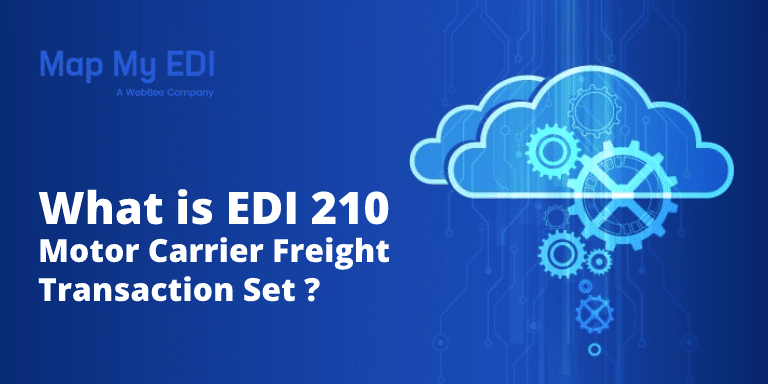Most Prevalent EDI Challenges in the Current Context
Today, the majority of businesses think EDI is a boon for them. It’s really true, the EDI technology offers many advantages for any business irrespective of its size. By fastening different processes, it brings more efficiency and saves resources to a great extent. However, the implementation of EDI is not an easy task as the businesses might face plenty of EDI Challenges.
EDI is a system to system exchange of business documents in a standard electronic format between two trading partners. The entire process is generally paperless and occurs without the presence of humans. With it, business documents like purchase orders, invoices, advance shipping notice, payments can be exchanged in one go without any difficulty.
Many businesses associated with the supply chain industry across the world are extremely dependent on EDI nowadays. The primary reason for this widespread adoption is that EDI ensures accurate, secure, and reliable transactions of crucial business data. On top of that, it also automates different processes and improves overall performance.
However, it is just one side, since the adoption of EDI into the business model brings its own set of EDI Implementation Challenges. Let’s have a look at them:
- Legal context:
Every country across the globe has imposed certain strict rules on all the cyber tasks carried out in a business. Any unwilling activities can lead a business into heavy trouble. For example, document tampering, publishing private data, failing to maintain the records, etc. Moreover, for sharing the crucial data via EDI, the business should need to establish a verification procedure. So, the business must be able to prevent such kinds of activities if it wants to adopt EDI. This can be turned as one of the major EDI Challenges for any small-scale business.
- In-house capability:
Any business requires in-house expertise for the efficient handling of EDI. The availability of skillful and experienced staff will be very useful in dealing with any issue that occurred while processing. Even though outsourced service providers offer the best service in this regard, yet they require at least a couple of days to fix it. In such a situation, no matter, whether the issue is small or large, the business will become obliged to pay the penalties. So, managing of EDI process without any issue will be one of the most important EDI Challenges for any business.
- End-to-End Automation:
Most of the EDI software currently available allows any person to log in and see any of the EDI activities. For instance, the processing of purchase orders, sales orders, invoicing, and many more. This will risk the document processing as this person can tamper with the data. Thus. it’s very important that the EDI should offer end-to-end automation rather than semi-automation.
- Format similarity:
At present, many different formats are in use in EDI processing. HIPAA, EANCON, XML, ANSI, X12, UBL, and some other custom-built formats are some prime examples. However, the possibility of both trading partners working with the same format is very less. In that case, it is difficult for the sender to convey the right message to the receiver. It results in ineffective communication – one of the most significant EDI Implementation Challenges.
- Privacy & Security:
The system enabled for EDI processing must be protected from the cyber fraudulent activities. For example, cyber hacking, virus attacks, and malware.
- Flexibility:
Likewise, any other technology, EDI software as well as standards changes over time. As a result, the business will be enforced to make changes in its process to suit the new EDI requirements. It can be very difficult for any business with limited resources.
- Transparency:
Ensuring transparency becomes difficult as the EDI process gets more complicated. Besides, retaining a higher level of clarity between two trading partners demands much more effort.
- Expenses:
Building an EDI infrastructure requires a huge amount of money. Besides, the extra expenditure linked with maintenance and staff training cannot be ignored as well.
- Interoperability:
By incorporating EDI into its operations, any business will restrict the growth possibilities. Because, the business will able to engage in transactions with those trading partners that make use of this technology. Further, it is highly difficult to make business deals with those who have not implemented EDI.
- Scalability:
In reality, the business rules and EDI document formats from one trading partner to another. Thus, incorporating a new trading partner into the business system can become a difficult task for any business. In such conditions, the scalability of the EDI software becomes one of the prime EDI Implementation Issues. Also, its capability to manage multiple EDI protocols will be really questionable.
Wrapping up:
The above-mentioned EDI Implementation Issues and EDI Challenges are extremely common in the field of EDI. The proper tackling of these challenges will yield higher efficiency across the supply chain. On the other hand, improper addressing might raise several hardships for your business.
The MapMyEDI solution is the best available option for better handling of EDI. It offers you several smart features to overcome these EDI challenges to ensure a seamless EDI process.
Explore and check what kind of functionalities are offered. Integrate the EDI solution with your business model and speed up your business data exchanging process. Our EDI Consulting Company will be happy to help you always!!!
Related Article:





